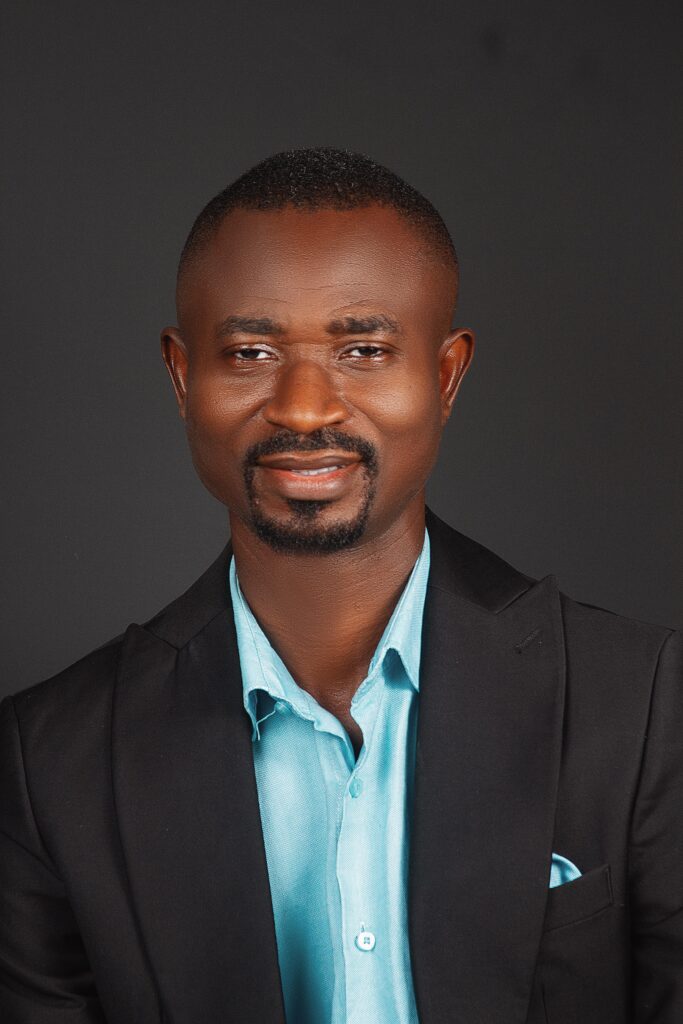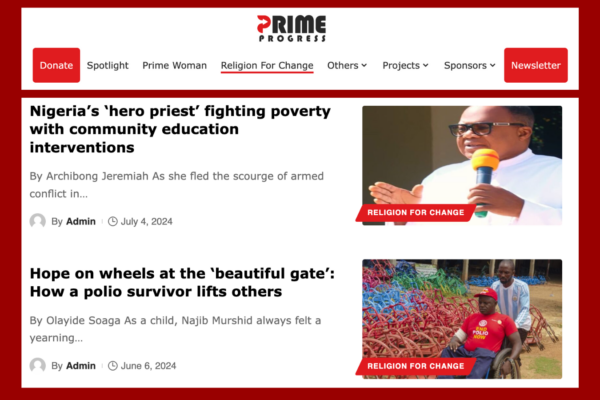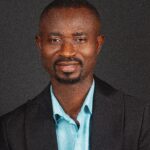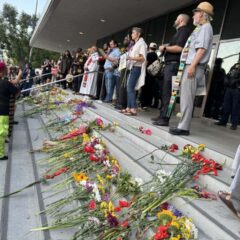Inspired by a fellowship with CRCC’s global project on engaged spirituality (2019-2023), journalist Innocent Eteng has found ways to improve reporting on religion in Nigeria.
Nigeria is a country with over 250 languages/tribes and a Muslim-north and a Christian-south dichotomy. Both religious conflicts and interreligious dialogues are commonplace here. Yet, as religious as Nigeria is, there is no media organization dedicated to reporting on religion.

After participating in the USC Center for Religion and Civic Culture’s global project on engaged spirituality (2019-2023) as a journalism fellow, I saw multiple opportunities to bring in-depth reporting about religion to Nigeria.
With initial funding from CRCC, I launched “Religion for Change,” a training program and special section of Prime Progress, the digital media organization that I started to document how people are responding to social problems in Nigeria. I also have secured the nonprofit registration for a new organization that both religious leaders and my journalism colleagues agreed is greatly needed in Nigeria’s media ecosystem: the Religion Journalism Foundation.
I foresee these efforts having a long-term impact: the promotion of understanding and unity across people of different faiths in a divided country.
The challenge
Deliberate reporting on religion from the perspective of how it motivates people to engage in social good is not common in Nigeria. Instead, there is a consistency in the way the media report incidents of religious riots and extremist activities, like those of the Boko Haram terrorists in northeast Nigeria.
This consistency and focus often overshadow the impact of highly successful, even decades-old, life-saving initiatives led by religious people across the country. There are countless humanitarian initiatives, free or subsidized schools, health and vocational centers led by religious people across Nigeria.
These initiatives fill critical gaps and serve the very poor in many communities. Yet, the people behind them hardly make media space, except when the publicity is paid for.
CRCC’s global project gave me the chance to meet and interview five spiritual exemplars (people motivated by their religious beliefs to dedicate themselves to solving social problems) in Sierra Leone, Cameroon and Nigeria.
One of the solutions-oriented stories I published from the interviews made One World Media Awards’ 2023 longlist. But more importantly, the near-extreme self-sacrifice I saw in the exemplars I met, coupled with very emotional feedback I got from some people who read my stories, showed me just how critical it was to continue telling stories about religious people solving social problems in their communities.
“Religion for Change”
The gap between the media’s current focus and the realities I saw on the ground validates the critical need for Prime Progress’ “Religion for Change” project. This comprises a fellowship and a special section on our website. With the fellowship, we seek to create awareness and build the capacity of more journalists to tell such stories, while the section allows us to amplify the efforts of those responding to social problems based on their religious convictions.
Thus far, we selected 10 fellows out of more than 50 applications and trained them in religion reporting from a solutions lens. Part of the training was a session by Lujain Alsendeg, a senior investigative data analyst at Code for Africa. Lujain showed the fellows how to use digital tools like the Armed Conflict Location & Event Data (ACLED) Project to track religious incidents and responses.
Following the training, each fellow pitched an idea. We commissioned five out of 10 and supported the fellows to produce the stories. You can read these stories here:
- How a 26-year-old Christian makes “scholars” of Islamic street kids
- Doctor missionaries and long tale of leprosy in Nigeria
- Hope on wheels at the ‘beautiful gate’: How a polio survivor lifts others
- The Muslim women committing Nigeria’s out-of-school children to classrooms
- Nigeria’s ‘hero priest’ fighting poverty with community education interventions
We will continue to support our reporters in consciously incorporating “religion for change stories” into their work and to commission freelance journalists to produce stories and spread the word further.
We plan to develop this section so that it takes on a strong identity and attracts readers, journalists and additional financial support.
Ultimately, we want to scale the project. For instance, we may incorporate more religions for change reporting into our Solutions Journalism Clinic and Solutions Campus Lab, through which we train newsrooms and student writers.
Religion Journalism Foundation
As the Engaged Spirituality project ended, I shared the idea of a nonprofit focused on religion reporting with both journalism colleagues and Muslim and Christian leaders that I had worked with in the past. They agreed it was an innovative and desperately needed idea.
We recently secured the governmental nonprofit registration for Religion Journalism Foundation. The board is led by the chairperson, Reverend John Joseph Hayab, who is the country director of the Global Peace Foundation and chairman of the Christian Association of Nigeria in the country’s northwest Kaduna State.
Officially launching in early 2025, the nonprofit will empower journalists to do religion reporting in a fair, balanced and professional way. It will also constructively produce and publish news and reports on the intersection of faith and society.
As the publisher of Prime Progress and now the founder of the Religion Journalism Foundation, these projects bring me a special feeling of fulfillment. I hope to work with my teams to sustain them.
Emmanuel Innocent Eteng is a journalist fellow with the Spiritual Exemplars Project.





